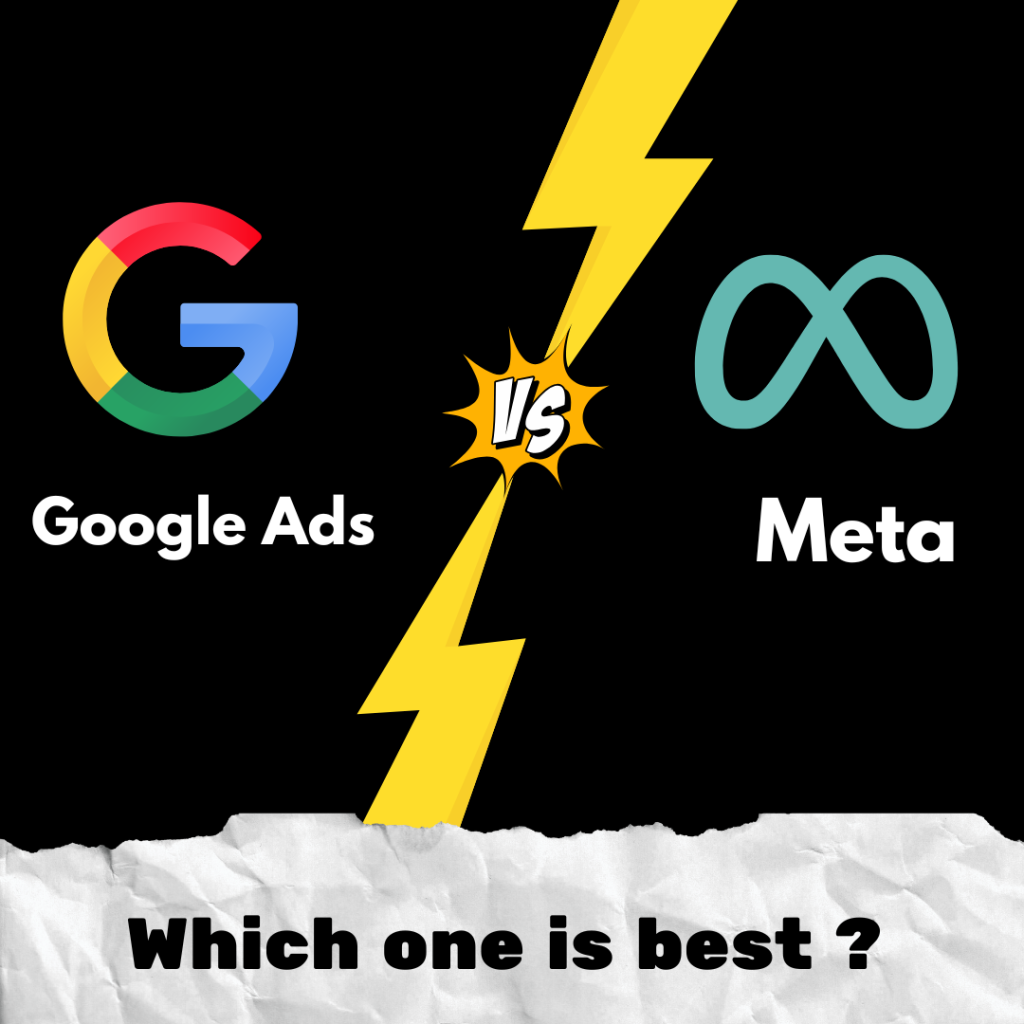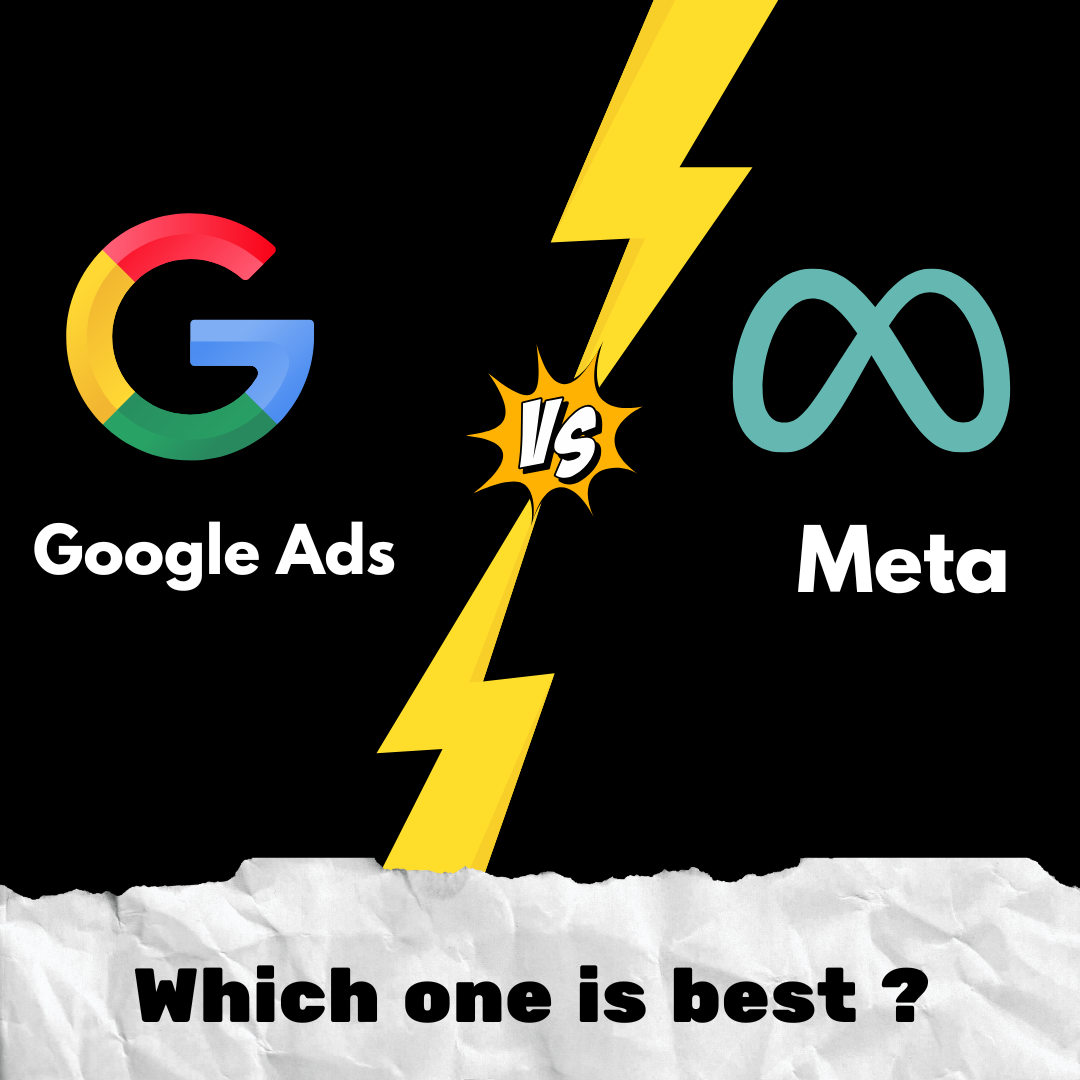Table of Contents

Meta Description: Comparing Google Ads vs Facebook Ads? Discover the pros and cons of each platform and determine which one is best for your business needs.
Introduction: The Great Advertising Debate
When it comes to digital marketing, businesses often face a tough decision: Google Ads or Facebook Ads? These two giants dominate the online advertising landscape, offering powerful tools to reach targeted audiences and boost revenue. But which platform is right for your business? The answer depends on your objectives, audience, and budget. In this article, we’ll break down the strengths and weaknesses of both platforms to help you make an informed decision.
What Are Google Ads vs Facebook Ads?
Google Ads is a pay-per-click (PPC) advertising platform that allows businesses to display ads across Google’s Search Network, Display Network, YouTube, and more. With Google Ads, you can target users actively searching for products or services like yours.
Facebook Ads, on the other hand, focuses on social media advertising. It leverages the power of Facebook, Instagram, and Messenger to connect with audiences based on interests, behaviors, and demographics.
Both platforms have unique capabilities, but understanding their core differences is crucial for choosing the right one.
The Key Differences Between Google Ads vs Facebook Ads
- Audience Intent
Google Ads: Targets users with high purchase intent, as they’re actively searching for solutions.
Facebook Ads: Excels at generating awareness and interest, targeting users based on lifestyle and preferences. - Advertising Goals
Google Ads: Best for driving immediate actions like website visits or purchases.
Facebook Ads: Ideal for building brand awareness and nurturing customer relationships. - Cost and ROI
Google Ads: Tends to have higher cost-per-click (CPC) but offers a strong ROI for intent-based campaigns.
Facebook Ads: Generally has lower CPC but requires more creative strategies to convert users into customers. - Ad Formats
Google Ads: Text-based search ads, display ads, shopping ads, and video ads.
Facebook Ads: Image, video, carousel, slideshow, and dynamic ads tailored to social media engagement.
When to Choose Google Ads
Google Ads is perfect if:
Your audience actively searches for your products or services.
You want to capture high-intent leads.
You’re focusing on measurable conversions like sales or leads.
For example, if you run an e-commerce store selling niche products, Google Shopping Ads can drive immediate sales by appearing directly in search results.
When to Choose Facebook Ads
Facebook Ads is ideal if:
Your goal is to increase brand visibility and awareness.
You want to leverage creative storytelling through visuals.
Your target audience spends significant time on social media platforms.
For example, a clothing brand could use Facebook Ads to showcase a new collection with engaging video ads, driving both clicks and shares.
Can You Use Both Platforms?
Absolutely! Many businesses use a hybrid strategy to maximize results.
Use Google Ads to target high-intent searches and capture ready-to-convert leads.
Leverage Facebook Ads to build brand loyalty and nurture leads through retargeting.
This dual approach can help you reach users at different stages of the sales funnel.
Factors to Consider When Choosing a Platform
- Your Budget
Smaller budgets may perform better with Facebook Ads due to lower CPC.
For higher budgets, Google Ads offers more scalability for competitive niches. - Industry and Audience
B2B and service-based industries often see better results with Google Ads.
Lifestyle, retail, and entertainment brands thrive on Facebook Ads. - Campaign Goals
Focus on Google Ads for short-term sales.
Choose Facebook Ads for long-term customer engagement.
Conclusion: Which Platform Wins?
There’s no definitive winner in the Google Ads vs Facebook Ads debate—it all depends on your business goals and target audience. While Google Ads captures users with purchase intent, Facebook Ads excels at building relationships and creating brand advocates. For many businesses, the best strategy involves using both platforms in tandem for optimal results.
Ready to take your advertising strategy to the next level? Explore Google Ads and Facebook Ads today to see what works best for your business!
FAQ: Google ads vs Facebook ads
Google Ads Vs Facebook Ads
Google Ads focuses on keywords and search intent, while Facebook Ads targets users based on interests, demographics, and behaviors.
Which platform is more cost-effective?
Facebook Ads generally has lower CPC, but Google Ads often delivers better ROI for high-intent searches.
Can small businesses afford Google Ads or Facebook Ads?
Yes! Both platforms allow flexible budgeting, enabling small businesses to start with modest campaigns.
Which platform works better for e-commerce businesses?
Google Ads is great for driving immediate sales, while Facebook Ads helps with showcasing products visually and retargeting.
How can I measure the success of my campaigns?
Both platforms offer robust analytics tools like Google Ads’ Dashboard and Facebook Ads Manager to track performance metrics.
